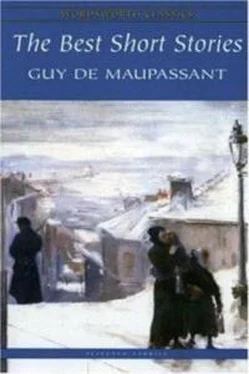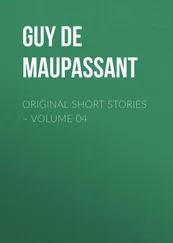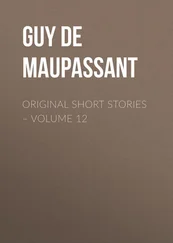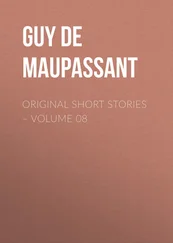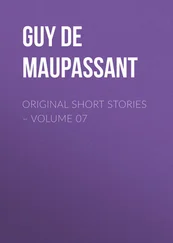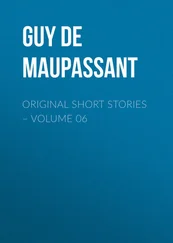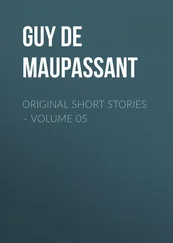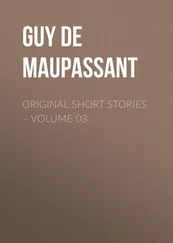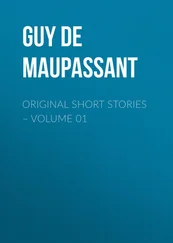The nun said to her brother: "You remember how mamma used always to read her old letters; they are all there in that drawer. Let us, in turn, read them; let us live her whole life through tonight beside her! It would be like a road to the cross, like making the acquaintance of her mother, of our grandparents, whom we never knew, but whose letters are there and of whom she so often spoke, do you remember?"
Out of the drawer they took about ten little packages of yellow paper, tied with care and arranged one beside the other. They threw these relics on the bed and chose one of them on which the word "Father" was written. They opened and read it.
It was one of those old–fashioned letters which one finds in old family desk drawers, those epistles which smell of another century. The first one started: "My dear," another one: "My beautiful little girl," others: "My dear child," or: "My dear (laughter)." And suddenly the nun began to read aloud, to read over to the dead woman her whole history, all her tender memories. The judge, resting his elbow on the bed, was listening with his eyes fastened on his mother. The motionless body seemed happy.
Sister Eulalie, interrupting herself, said suddenly:
"These ought to be put in the grave with her; they ought to be used as a shroud and she ought to be buried in it." She took another package, on which no name was written. She began to read in a firm voice: "My adored one, I love you wildly. Since yesterday I have been suffering the tortures of the damned, haunted by our memory. I feel your lips against mine, your eyes in mine, your breast against mine. I love you, I love you! You have driven me mad. My arms open, I gasp, moved by a wild desire to hold you again. My whole soul and body cries out for you, wants you. I have kept in my mouth the taste of your kisses—"
The judge had straightened himself up. The nun stopped reading. He snatched the letter from her and looked for the signature. There was none, but only under the words, "The man who adores you," the name "Henry." Their father's name was Rene. Therefore this was not from him. The son then quickly rummaged through the package of letters, took one out and read: "I can no longer live without your caresses." Standing erect, severe as when sitting on the bench, he looked unmoved at the dead woman. The nun, straight as a statue, tears trembling in the corners of her eyes, was watching her brother, waiting. Then he crossed the room slowly, went to the window and stood there, gazing out into the dark night.
When he turned around again Sister Eulalie, her eyes dry now, was still standing near the bed, her head bent down.
He stepped forward, quickly picked up the letters and threw them pell–mell back into the drawer. Then he closed the curtains of the bed.
When daylight made the candles on the table turn pale the son slowly left his armchair, and without looking again at the mother upon whom he had passed sentence, severing the tie that united her to son and daughter, he said slowly: "Let us now retire, sister."
A Humble Drama
Meetings that are unexpected constitute the charm of traveling. Who has not experienced the joy of suddenly coming across a Parisian, a college friend, or a neighbor, five hundred miles from home? Who has not passed a night awake in one of those small, rattling country stage–coaches, in regions where steam is still a thing unknown, beside a strange young woman, of whom one has caught only a glimpse in the dim light of the lantern, as she entered the carriage in front of a white house in some small country town?
And the next morning, when one's head and ears feel numb with the continuous tinkling of the bells and the loud rattling of the windows, what a charming sensation it is to see your pretty neighbor open her eyes, startled, glance around her, arrange her rebellious hair with her slender fingers, adjust her hat, feel with sure hand whether her corset is still in place, her waist straight, and her skirt not too wrinkled.
She glances at you coldly and curiously. Then she leans back and no longer seems interested in anything but the country.
In spite of yourself, you watch her; and in spite of yourself you keep on thinking of her. Who is she? Whence does she come? Where is she going? In spite of yourself you spin a little romance around her. She is pretty; she seems charming! Happy he who … Life might be delightful with her. Who knows? She is perhaps the woman of our dreams, the one suited to our disposition, the one for whom our heart calls.
And how delicious even the disappointment at seeing her get out at the gate of a country house! A man stands there, who is awaiting her, with two children and two maids. He takes her in his arms and kisses as he lifts her out. Then she stoops over the little ones, who hold up their hands to her; she kisses them tenderly; and then they all go away together, down a path, while the maids catch the packages which the driver throws down to them from the coach.
Adieu! It is all over. You never will see her again! Adieu to the young woman who has passed the night by your side. You know her no more, you have not spoken to her; all the same, you feel a little sad to see her go. Adieu!
I have had many of these souvenirs of travel, some joyous and some sad.
Once I was in Auvergne, tramping through those delightful French mountains, that are not too high, not too steep, but friendly and familiar. I had climbed the Sancy, and entered a little inn, near a pilgrim's chapel called Notre–Dame de Vassiviere, when I saw a queer, ridiculous–looking old woman breakfasting alone at the end table.
She was at least seventy years old, tall, skinny, and angular, and her white hair was puffed around her temples in the old–fashioned style. She was dressed like a traveling Englishwoman, in awkward, queer clothing, like a person who is indifferent to dress. She was eating an omelet and drinking water.
Her face was peculiar, with restless eyes and the expression of one with whom fate has dealt unkindly. I watched her, in spite of myself, thinking: "Who is she? What is the life of this woman? Why is she wandering alone through these mountains?"
She paid and rose to leave, drawing up over her shoulders an astonishing little shawl, the two ends of which hung over her arms. From a corner of the room she took an alpenstock, which was covered with names traced with a hot iron; then she went out, straight, erect, with the long steps of a letter–carrier who is setting out on his route.
A guide was waiting for her at the door, and both went away. I watched them go down the valley, along the road marked by a line of high wooden crosses. She was taller than her companion, and seemed to walk faster than he.
Two hours later I was climbing the edge of the deep funnel that incloses Lake Pavin in a marvelous and enormous basin of verdure, full of trees, bushes, rocks, and flowers. This lake is so round that it seems as if the outline had been drawn with a pair of compasses, so clear and blue that one might deem it a flood of azure come down from the sky, so charming that one would like to live in a but on the wooded slope which dominates this crater, where the cold, still water is sleeping. The Englishwoman was standing there like a statue, gazing upon the transparent sheet down in the dead volcano. She was straining her eyes to penetrate below the surface down to the unknown depths, where monstrous trout which have devoured all the other fish are said to live. As I was passing close by her, it seemed to me that two big tears were brimming her eyes. But she departed at a great pace, to rejoin her guide, who had stayed behind in an inn at the foot of the path leading to the lake.
I did not see her again that day.
The next day, at nightfall, I came to the chateau of Murol. The old fortress, an enormous tower standing on a peak in the midst of a large valley, where three valleys intersect, rears its brown, uneven, cracked surface into the sky; it is round, from its large circular base to the crumbling turrets on its pinnacles.
Читать дальше
